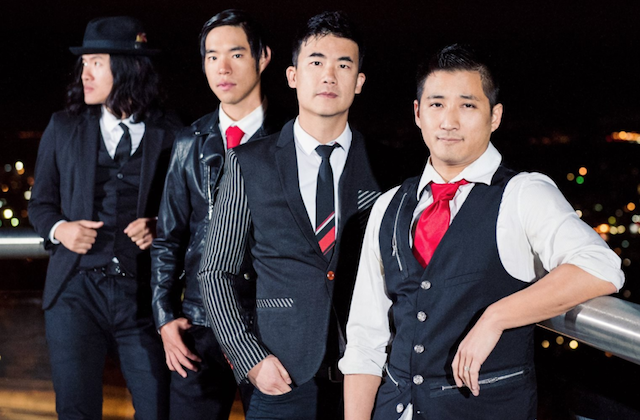SCOTUS Rules That Government Can't Censor Offensive Trademarks

An all-Asian-American rock band’s fight to trademark its name just led to a decision that could impact Native American’s ability to force the Washington NFL Team to drop its racist name.
Today (June 19), the Supreme Court issued a ruling in Matal v. Tam. In 2007, Simon Tam formed his group, The Slants, choosing a name that he says reclaims an anti-Asian slur. The U.S. Patent and Trademark Office (PTO)—and later, the Trademark Trial and Appeal Board—challenged the group’s right to the name, citing the name as disparaging toward people of Asian descent. The U.S. Court of Appeals for the Federal Circuit later ruled that the denial violated Tam’s First Amendment rights; the case was subsequently appealed to SCOTUS.
The court ruled 8-0 (new justice Neil Gorsuch did not weigh in) that denying the trademark is unconstitutional and that the government cannot use the Lanham Act to justify refusing to register names that some might find disparaging. The decision likely bolsters the case of the Washington NFL Team, whose trademark renewals were denied because a U.S. District judge ruled that they are offensive to Native Americans. SCOTUS previously declined to hear the team’s challenge. The U.S. Court of Appeals for the Fourth Circuit put the case on hold awaiting the Supreme Court’s decision in Matal v. Tam.
The court’s opinion was written in part by Justice Samuel Alito. As SCOTUSBlog details, all the justices joined Alito in his decision for parts I, II and III-A, except that Justice Clarence Thomas did not join part II; Chief Justice John Roberts, Justice Stephen Breyer and Justice Thomas are the only ones who joined Alito for parts III-B, III-C and IV; Justices Anthony Kennedy filed another opinion, which was joined by Justices Ruth Bader Ginsberg, Sonia Sotomayor and Elena Kagan; and Justice Thomas filed another separate opinion.
From the conclusion of the court’s opinion:
There is also a deeper problem with the argument that commercial speech may be cleansed of any expression likely to cause offense. The commercial market is well stocked with merchandise that disparages prominent figures and groups, and the line between commercial and non-commercial speech is not always clear, as this case illustrates. If affixing the commercial label permits the suppression of any speech that may lead to political or social “volatility,” free speech would be endangered.
Tam and The Slants issued a statement about the win on Facebook. It begins:
After an excruciating legal battle that has spanned nearly eight years, we’re beyond humbled and thrilled to have won this case at the Supreme Court. This journey has always been much bigger than our band: it’s been about the rights of all marginalized communities to determine what’s best for ourselves. During the fight, we found the Trademark Office justifying the denial of rights to people based on their race, religion, sexual orientation, and political views, simply because they disagreed with the message of these groups. To that end, they knowingly used false and misleading information, supported by questionable sources such as UrbanDictionary.com, while placing undue burdens on vulnerable communities and small business owners by forcing them into a lengthy, expensive, and biased appeals process. The Supreme Court has vindicated First Amendment rights not only for our The Slants, but all Americans who are fighting against paternal government policies that ultimately lead to viewpoint discrimination.
The American Civil Liberties Union celebrated the decision, calling it “a major victory for the First Amendment.” Meanwhile, community advocate Alton Wang* raised concerns about how the ruling will impact other communities of color.
I don't care what The Slants choose to call themselves, but using Asian Ams as a racial wedge here is disgusting.https://t.co/2MEcozZox7
— Alton Wang (@altonwang) June 19, 2017
This means Redskins win & marginalized communities will have no grounds to stop their identities from being stolen.https://t.co/H8jZnyAH7E
— Alton Wang (@altonwang) June 19, 2017
SCOTUS took up Lee v Tam yet not Redskins. The core issue was the same. They chose to decide merits of one community using another as proxy.
— Alton Wang (@altonwang) June 19, 2017
*This post has been updated.
